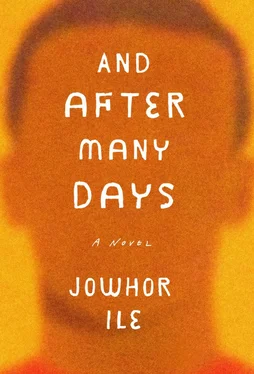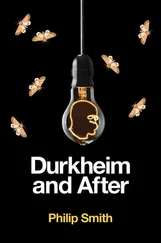Mark and Ma had gone to the same primary school in Obite. The story went that after his standard six — this was back in the days when, according to Ma, a standard-six certificate was a rare thing and far superior to the university degrees awarded these days — Mark took his certificate and headed off to Port Harcourt in search of work. He spoke and wrote impeccable English; he could draft minutes, compose persuasive letters, and had a natural aptitude for quick learning. He applied for secretarial positions, clerk positions, office boy positions, but nothing was forthcoming. With his application letters and standard-six certificate in hand, he rose early every morning and went from office to office, through all of the old Port Harcourt town area and the new layouts, yet no job was offered to him. Meanwhile, in the village, his mother bragged about how her son had gone to get a white-collar job, how he had an excellent certificate; she said that son of hers was not at all made for farm work. When Mark returned to the village many months after, without a job or the promise of one, his mother, bewildered, asked him, “So what have you been doing?”
“I have been applying,” he said to his mother. To show he hadn’t been playing about in Port Harcourt instead of looking for a job, he went to his box and brought out a creased manila envelope that had gone soft, like cloth. Out of it he brought his application letters and his standard-six certificate, which was so worn that it was barely holding up in the middle where he had folded it. His mother took a look at it and said, “Well done.” She was swamped at that moment by a sense of overwhelming dignity at her son’s effort. He had been working so hard at making applications that he had ripped his certificate in half. As she later said to the other women, her son was the application master.
Even this afternoon, three pens were clipped on the breast pocket of Application Master’s shirt: red, black, and blue, like an auxiliary nurse. There was an austere shine to the aging leather of his sandals.
Paul tapped his brother on the shoulder. “Make yourself useful,” he said, “carry something else. See the yams.” He gestured toward the car, and Ajie sauntered back, mumbling that Paul should let him be.
Ajie’s friend Ossai arrived, and soon after Gospel and Uba joined them, and the whole posse buzzed their way upstairs.
“There is a spot at Uhwo where a buffalo is calving,” Uba said.
“Liar! Everyone knows there are no buffaloes anymore in Uhwo.”
“I swear, I can take you this evening, or tomorrow morning if you are free.”
“A grass cutter got caught in my trap,” Ossai said, “at Uhwo, too.” Soon the trap would claim a deer, he boasted. When should they go see his lucky spot? But the dances were beginning, they needed to go cut raffia to get the skirts for the outfits.
“Tomorrow, if the weather holds.”
“Whether the weather holds or not,” Uba insisted, “we have to cut the raffia, latest tomorrow. It’s important.” Their voices and the noise of their footsteps bounced about, echoing as if the staircase were an empty house.
—
Bendic sat on the puffed armchair in his parlor. His chest hair was a mesh of gray, and the low mound of his belly heaved gently. Ma’s sequined blouse was up on a hanger on the balcony, airing in the breeze. She had changed into a laid-back flowered round-necked blouse that didn’t matter.
Bibi burst into the boys’ room. “Oh my God! I knew I would forget something! Paul, please check if I put my slippers in your bag by mistake.”
“Very unlikely,” said Paul.
“It’s okay if you don’t want to help,” Bibi said, and turned toward Ajie. Paul unzipped his bag, rummaged through the sides, and asked her to have a look.
“What about you, Ajie?” Bibi asked, looking at his bag. Ajie pushed his unpacked bag toward her; she looked down at it for a second, then pulled out some clothes from the bag, felt inside hurriedly, and decided she may have actually left the slippers at home in Port Harcourt. She turned and walked out of the room without saying a word. They overheard her lament to Ma, who said something back to her in a low voice.
“Akabuka Market?” Bibi wailed. “I can’t even believe you are suggesting that. Do you really think I will find that type of slippers in Akabuka Market, Ma?”
The sun began to cool and visitors trickled in. Some dropped in for a quick greeting, others sat down long enough to be offered something: kola nut and pepper, garden eggs, soft drinks, groundnuts. Paul and Ajie looked over the quadrangle from their window, watching the comings and goings.
Downstairs, a woman walked toward the door with her son in tow. He was head and shoulders taller but followed like he lacked all volition. Ajie felt this visit would have something to do with school fees, a school levy, or money to register for some final exam.
“Holding court,” Paul said as he lifted the gauzy blind, then let it fall back to place.
“Kings hold court,” Ajie said.
“Local magistrates do, too,” Paul responded, not exactly sidestepping the combat his brother was trying to initiate. “I think Bendic should take up a chieftaincy. Chief before his name will suit him. I think he already performs the duties one way or the other. But you know Bendic.”
“Chief Benedict Utu,” Ajie enunciated slowly, lending the title its required weight. “It sounds good.”
A shrill, angry falsetto rose from the parlor and stayed up. Raised voices weren’t unusual during sessions at Bendic’s parlor. Other voices joined in. Ajie could tell most of the men by their voices.
“Jonah,” Paul said with a small laugh. “I wonder who he’s giving the sermon to today.”
“Don’t worry, Ikpo will soon shout him down.”
“Shout Jonah down? Are you kidding?”
Ajie always found Jonah amusing. Not just for his slight voice (and how it didn’t match the deep lines on his face and the stoop of his shoulders) or how easily rattled he was, but the name, too. Weren’t his parents aware of the fate of that Jonah in the Bible? The whole shipwreck business and living in the belly of a whale for three days? Ajie had read the story on many occasions and each time greatly relished Jonah’s tantrums and self-pity, even though he thought him mean-spirited.
A man knocked on the door downstairs. He stood waiting, didn’t try the door handle. Paul stuck his head out the window, greeted the man, and told him the door was unlocked, that he should just give it a push. The man made to push the door as Paul ran downstairs anyway to let him in, and Ajie followed.
The man had no upper lip. Half his face was gone, deep holes burrowed in by a childhood affliction of smallpox. Still, he wasn’t hideous. He was tall and athletic, yellow like the sun. He was the high priest of the Ntite shrine. His name was Aduche, and they knew he had a great love for Bendic. Everything he had seen and knew of the world could be sensed in the quiet power of his gait as he stepped into the entryway. He placed his hand on Paul’s cheek as he responded to their greeting. Ajie could smell the tobacco and wood smoke and something else on his clothes, and when he smiled at them, it was all gum. He looked down at Ajie for a brief moment. His gaze had a quality possessed by no one else Ajie had met in the whole world. It was something of a shared secret. It made him feel special; it seemed to be saying that he, Ajie, was useful in a way that was particularly important and that a time would come when this purpose would be made clear.
“Where is your father?” Aduche asked, as if he didn’t know the way.
A hush had fallen over the crowd in the parlor, except for Bendic’s voice, which kept rising and falling, strong, though the words were muffled to anyone standing in the stairway. Conscious of Aduche walking behind them, Ajie tried to keep pace with Paul, who was taking it slow, not skipping the steps two at a time, as he normally would. It was a stately procession, two boys marching to the altar with a high priest on their trail. It was Abraham with a dagger hidden by the girdle of his loincloth and Isaac in front of him, wondering where the sacrificial lamb was. Ajie knew if anyone had to pick between him and his brother that Paul would be preferred, Paul would be set aside for saving. But Abraham had to choose “the son whom he loved” to offer as a sacrifice. Why was he put to that kind of decision? Why and how was it possible for him to love one son more than the other? What was so terrible about Ishmael that his own father’s love for him fell short, therefore disqualifying him as the worthy sacrifice? Why was Ishmael not preferred? Would Bendic love Paul enough to kill him if it were God Almighty asking him to give his most precious son?
Читать дальше












